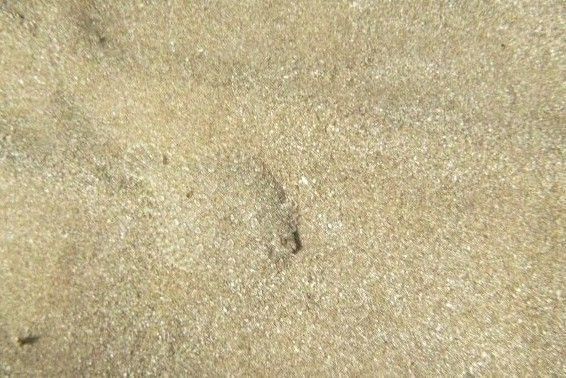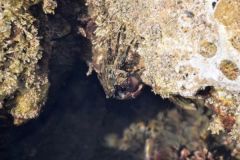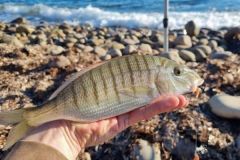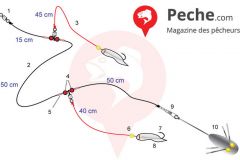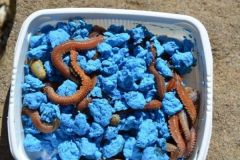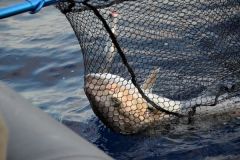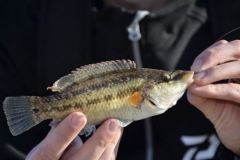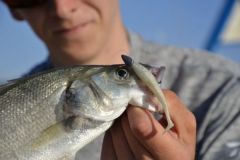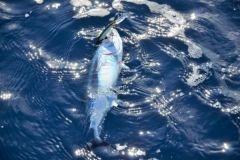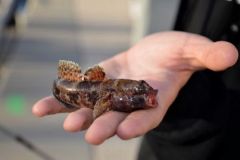Introducing rombou
Bothus podas is the scientific name of the rombou, a flatfish that excels in the art of camouflage. Its skin, covered in chromatophores, enables it to camouflage itself by imitating the surrounding biotope.
On its left side, there are two globular eyes set quite far apart. A sinister flatfish means that its eyes are on the left side. The rombou can be distinguished from other flatfish species by its characteristic diamond shape.
A flatfish that can grow to over 20 centimetres, frequently found in the Mediterranean.
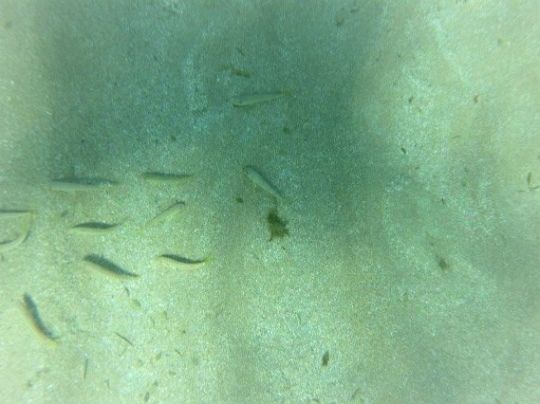
Nutrition and behavior
It feeds mainly on invertebrates and small fish. Buried in the sand, it watches for potential prey passing within its reach.
The redfish is a solitary fish, and the male ardently defends his territory. He can therefore change color according to his mood. To defend his territory in a dominant position, he'll wear darker colors, while in a weak position, he'll lean towards white.
This flatfish is mainly found on sandy bottoms, although it can sometimes venture close to rocks or posidonia fields. It is present from the first few meters and can venture to depths of over 100 meters.
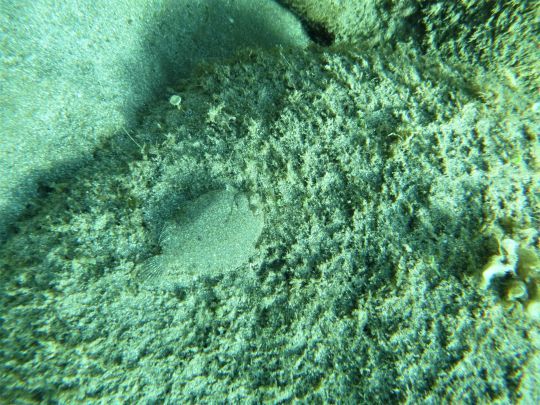
Fishing for red mullet
Colombo is a flatfish that is not really sought-after by anglers due to its rather small size. However, it remains a fairly common catch when surfcasting or bait fishing on Mediterranean sandy beaches.
As its mouth is small, it will have difficulty engreaming consistent baits. But a sand worm on a fine hook and sliding rig will be of great interest to this opportunistic little flatfish.
